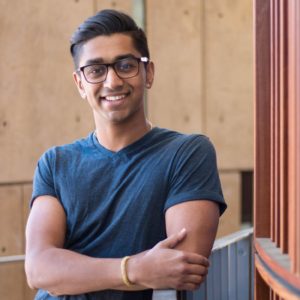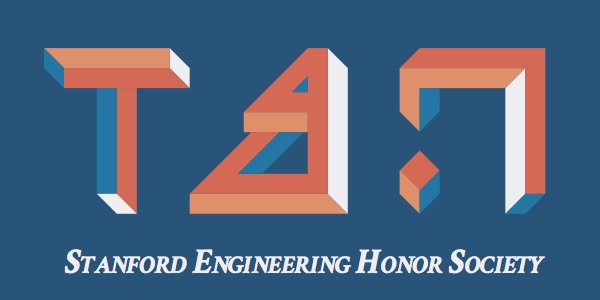I came to Stanford planning on pursuing neuroscience or bioengineering. I did neuroscience research on neurodegenerative disorders in high school, specifically Alzheimer’s and Parkinson’s, and saw myself as an M.D. Ph.D. practicing and researching translational medicine. I quickly learned during my first quarters that I enjoyed chemistry, was easily bored, and that computer science and machine learning were forging new and interesting paths in drug discovery. This led to me joining Professor Vijay Pande’s lab as a research assistant, working on molecular machine learning with the fantastic graduate students in the group.
I loved my time working in the lab and formed the opinion that I’d be a more effective computational biologist honing my skills in CS — a lot of the research I found interesting was being done by folks with strong CS and statistics backgrounds who were working on biological problems. I switched to studying CS during my sophomore year and was somewhere in between the biocomputation and AI tracks.
I had a lot of fun that year, but during the grind of studying computer science I started to lose sight of things I cared about working on. I took some time off my sophomore spring to go work, and spent a lot of time sophomore and junior year working part time while in school, so I could try to figure out what kinds of problems I wanted to work on using the new skills I was acquiring. While I was building a really interesting toolbox of skills to apply to problems, I wasn’t getting anywhere in terms of figuring out what problems I wanted to work on.
I think CS and other STEM majors at Stanford are fantastic at teaching you how to solve specific problems, but don’t shine in teaching you how to figure out which problems you want to solve. This difference drew me to start pursuing more humanities courses, and as I started taking more philosophy and linguistics in line with my deeper AI classes, I realized that I a) found cognition and consciousness fascinating and b) really enjoyed philosophy of mind. Taking Phil 80, CS224n, and Linguistics 130A together sparked my interest in examining cognition and reasoning through the different frames found in the humanities and the sciences. By the time I reached the end of junior year, I was re-considering graduate school, after having put thoughts of grad school to rest after switching to CS, and I found that my new interests fell quite neatly into Symbolic Systems. I declared a bit late (my senior winter, after taking SymSys 1 after finishing the rest of the major) and applied for graduate school scholarships, and I’ll be heading to the UK next year to study computational statistics and public policy.
I think Symbolic Systems shines as a major for those interested in understanding what cognition and consciousness are from a technical and humanistic perspective. The philosophy core made me better at thinking about how to reductively break down consciousness and cognition, while my technical classes enabled me to build systems that functionally matched (some, not all!) aspects of these philosophical descriptions. I also got a bit better at writing along the way.

Blogger:
Aneesh Pappu
Why did you choose to be an engineer?
I chose to be an engineer so that I could build things to impact things around me. I’m studying AI because I think general intelligence is one of the most profound problems of our time.
Hometown:
Pullman, WA
Class year:
2019
Field:
Symbolic Systems
Blogger bio:
Aneesh Pappu is a Symbolic Systems major from Pullman, WA, studying artificial intelligence and interested in data and information technology policy. After Stanford, he’s heading to the UK as a Marshall Scholar to study computational statistics and public policy.
